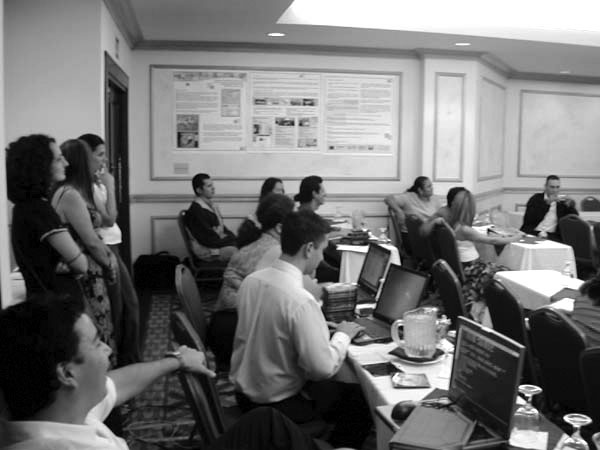

Latin America and the Caribbean
 |
 |
| International
Strategy for Disaster Reduction Latin America and the Caribbean |
Newsletter
ISDR Inform - Latin America and the Caribbean |
 |
|
Multimedia
|
| Users of Information Centers and the New Era of Knowledge
Management
In this new century, due to necessarily strong links between information
consumers, specialists and producers, researchers who generate information
have demonstrated an increased interest in, and valid concerns about,
the pressing need to train information users. It is safe to say that,
in the past, the role of information centers (IC) was essentially non-proactive
and traditional, centered on the customer as an agent of consumption.
His or her information needs were met only upon their request, and they
were not encouraged to consult other information products or sources. The interpretation of consumer information requests mentioned earlier
considers various issues relevant to the subject under examination: its
evolution, progress, contradictions and existing gaps in the information
emanating from planners and researchers. This is why current ICs can
make a significant difference in the lives of their customers, through
the provision of accurate, scientific, timely, updated and complete information.
|
|
 |
|
|
In this way, consumers of today's ICs contribute to the continuous strengthening of information management processes. Currently, a typical task of any ICs is to understand who its customers are, their information habits, the type of information that they seek, and so forth. To this end, they must develop increasingly interactive communication channels between information producers and consumers. In addition to their names and addresses, it is important for ICs to record other customer information, such as their education level, occupation, age, gender, and their links to the services provided by these centers, as well as their interests, frequently examined issues and areas, and the sources consulted. In the specific case of risk reduction management -an area where ICs provide specialized information associated with the various disciplines and academic fields involved- it is important that the centers currently participating in the Central American Network for Disaster and Health Information (CANDHI)2 are able to access this comprehensive knowledge. It is also essential to take into account the pressing need to disseminate this information at regional, national and local levels.
|
|
 |
 |
|
The pool of information
available in this field is constantly growing. The centers established
within many organiza-tions such as civil protection units, universities
and emergency commissions, among others, must forge strong relationships
between their users and their needs,
For additional information, please contact: 1 Information technologies are not only technological resources linked
to computer programs, but also to information itself. |
|
| © UN/ISDR |